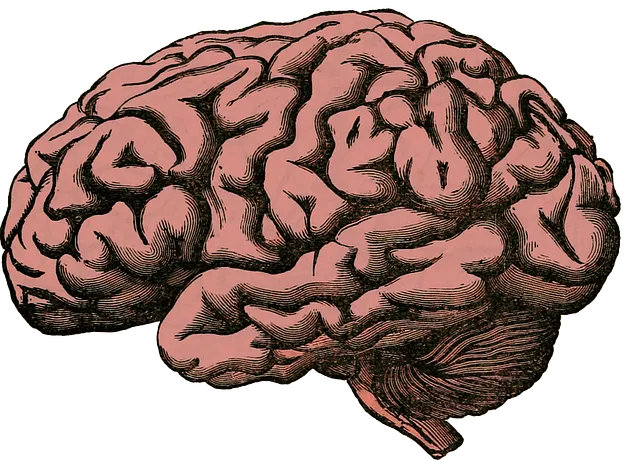The Denver Kaiser Permanente behavioral health center promotes proactive mental wellness through comprehensive self-assessment tools that leverage online platforms and workshops. By integrating conflict resolution, stress management, and self-care practices, these tools enable early detection of mental health issues, personal growth, and resilience. The center's holistic approach, emphasizing self-awareness exercises and personalized interventions like confidence-boosting strategies, supports immediate and long-term mental well-being. Continuous improvement based on user feedback ensures the tool remains effective in catering to diverse needs within the community.
Mental wellness self-assessment tools play a crucial role in modern behavioral health, empowering individuals to take charge of their mental well-being. This article explores the development of such tools, focusing on the innovative approach adopted by the Denver Kaiser Permanente Behavioral Health Center. We’ll delve into key components, implementation strategies, and continuous improvement methods that have made their program a game-changer. By understanding these aspects, professionals can enhance access to self-assessment resources, fostering better mental health outcomes.
- Understanding the Need for Self-Assessment Tools in Behavioral Health
- The Denver Kaiser Permanente Behavioral Health Center's Approach
- Key Components of Effective Mental Wellness Self-Assessment Tools
- Implementation and Continuous Improvement Strategies
Understanding the Need for Self-Assessment Tools in Behavioral Health

In today’s fast-paced world, prioritizing mental wellness is more crucial than ever. Tools that facilitate self-assessment play a pivotal role in this process, especially within behavioral health centers like the Denver Kaiser Permanente center. These tools empower individuals to take an active role in understanding their mental state and identifying areas for improvement, which can significantly enhance overall well-being. By providing accessible means for self-reflection, such as through online platforms or workshops, the Denver Kaiser Permanente behavioral health center aligns with the growing trend of promoting proactive healthcare practices.
Self-assessment tools offer a range of benefits, from encouraging early detection of mental health issues to fostering personal growth and resilience. Techniques like conflict resolution training and stress management workshops can be integrated into these tools, teaching individuals effective coping strategies. Moreover, by incorporating self-care practices into the assessment process, users gain valuable insights into their behaviors and habits that contribute to or hinder their mental wellness. This holistic approach not only aids in preventing more severe behavioral health issues but also equips individuals with the necessary skills to navigate life’s challenges more effectively.
The Denver Kaiser Permanente Behavioral Health Center's Approach

The Denver Kaiser Permanente Behavioral Health Center takes a holistic approach to mental wellness self-assessment tools development, focusing on empowering individuals through various techniques. They believe in fostering self-awareness exercises as a cornerstone of their program, enabling clients to understand and accept their emotions and behaviors. By integrating evidence-based practices, the center offers a range of interventions tailored to individual needs. For instance, they employ confidence-boosting strategies to help individuals set achievable goals and build resilience. Additionally, sessions focused on self-esteem improvement are designed to challenge negative thought patterns and promote positive self-talk, fostering a sense of worth and empowerment.
This approach not only ensures comprehensive mental health support but also encourages long-term wellness. The Denver Kaiser Permanente Behavioral Health Center’s dedication to innovation and personalized care makes it a leading facility in developing effective self-assessment tools that contribute to the overall well-being of its community.
Key Components of Effective Mental Wellness Self-Assessment Tools

Effective mental wellness self-assessment tools should incorporate several key components to ensure accurate evaluations and meaningful action plans. Firstly, they must be comprehensive, addressing various aspects of mental health such as emotional well-being, stress management, and social connections. Tools developed by experts like those at Denver Kaiser Permanente behavioral health center often integrate validated assessment scales and questionnaires to measure symptoms of common mental health disorders, facilitating early detection.
Moreover, these tools should promote self-reflection and emotional regulation through open-ended questions that encourage users to explore their thoughts and feelings. Incorporating aspects like resilience, coping strategies, and positive thinking can empower individuals to take control of their mental wellness. Additionally, incorporating interactive features and mental wellness coaching programs development within the tool can enhance engagement and provide personalized guidance, ultimately supporting long-term mental health improvement.
Implementation and Continuous Improvement Strategies

Implementing a mental wellness self-assessment tool is just the first step; continuous improvement is key to its long-term success. At the Denver Kaiser Permanente behavioral health center, we prioritize user feedback and data analysis to refine our approach. Regularly surveying users about their experiences allows us to identify areas of strength and weakness in the tool’s design and functionality. This feedback informs tailored enhancements that cater to diverse user needs, ensuring the tool remains relevant and effective over time.
Additionally, integrating evidence-based practices and staying updated with the latest research in mental health is essential. For instance, incorporating techniques like positive thinking exercises and emotional healing processes into the self-assessment can enrich the user experience. We also offer Mental Wellness Journaling Exercise Guidance to support users in reflecting on their assessments and implementing actionable steps for improvement. By combining user input, evidence-based methods, and ongoing refinement, we aim to create a dynamic tool that fosters continuous mental wellness journeys.
Mental wellness self-assessment tools play a pivotal role in enhancing access to behavioral health services, as demonstrated by the innovative approach of the Denver Kaiser Permanente Behavioral Health Center. By focusing on key components such as simplicity, validity, reliability, and cultural sensitivity, these tools empower individuals to take charge of their mental health. Implementation strategies that include continuous improvement ensure their effectiveness in navigating the complex landscape of behavioral healthcare. Adopting these practices can revolutionize how we address mental wellness, fostering a more inclusive and accessible environment for all.






